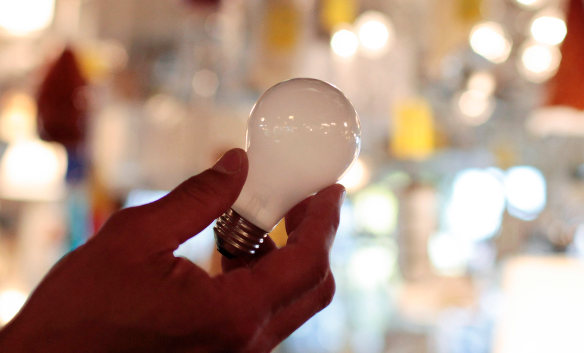The Latest News
Biden Admin Moving Forward With Light Bulb Bans In Coming Weeks

As part of its plan to save energy and the environment, the Biden administration is getting ready to ban all common light bulbs across the country.
The Department of Energy (DOE) finished the rules in April 2022, which say that stores can’t sell incandescent light bulbs after August 1, 2023. The DOE will start fully enforcing the ban on that date, but it has already told stores to stop selling that type of light bulb and has started sending warning letters to businesses in recent months.
“The lighting industry is already embracing more energy efficient products, and this measure will accelerate progress to deliver the best products to American consumers and build a better and brighter future,” Energy Secretary Jennifer Granholm said last year.
According to the DOE’s announcement, the regulations will save consumers an estimated $3 billion per year on utility bills and cut carbon emissions by 222 million metric tons over the next 30 years.
Under the rules, light bulbs like incandescent and halogen will be banned in favor of light-emitting diode, or LED, bulbs. Since 2015, more and more U.S. households have switched to LED light bulbs. However, the most recent results from the Residential Energy Consumption Survey show that less than half of households use mostly or only LEDs.
Remember it's all about controlling every aspect of our lives. Washers, light bulbs, stoves, cars, mowers, utilities. What's next? Our clothes?
— llanier💥💥🦮💥💥 (@llanier67) April 1, 2023
Biden admin moving forward with light bulb bans in coming weeks | Fox News https://t.co/HdpuhFSKop
Overall, the federal data showed that 47% of people use mostly or only LEDs, 15% use mostly incandescent or halogens, and 12% use mostly or only compact fluorescent (CFL). Another 26% said they didn’t have a main type of bulb. In December, the DOE made new rules that made it illegal to buy CFL bulbs. This made it possible for LEDs to become the only legal light bulbs to buy.
According to the survey results, LEDs are also much more common in homes with higher incomes. This means that the energy regulations will mostly affect Americans with lower incomes. 54% of homes with an annual income of more than $100,000 used LEDs, but only 39% of homes with an annual income of $20,000 or less did.
It starts with Gas Stoves, Washing Machines and Light Bulbs, it ends with full blown communism. pic.twitter.com/gmbmsFBdVr
— Phillip Oliver-Holz (Alpha Male)🇺🇸 (@ThePhillipHolz) April 1, 2023
“We believe that further regulatory interference in the marketplace is unwarranted given that more energy efficient lighting choices, namely light-emitting diode (LED) bulbs, are already available for those consumers who prefer them over incandescent bulbs,” a coalition of free market and consumer groups opposed to incandescent bulb bans wrote in a comment letter to the DOE last year.
“While LEDs are more efficient and generally longer-lasting than incandescent bulbs, they currently cost more than incandescent bulbs and are inferior for certain functions such as dimming,” the letter continued. “Consumers are best served by retaining the choice between incandescent bulbs and LEDs rather than regulating incandescent bulbs off the market.”
The groups also said that estimates of how good energy efficiency rules are for the climate are “speculative, based on assumptions, and likely to be biased in the hands of agencies with a regulatory agenda.”
The rule from the DOE in April 2022, on the other hand, got rid of a rule from the Trump administration that was meant to protect incandescent light bulbs and give consumers a choice of what to buy. Former President Donald Trump was also against LED light bulbs. In 2019, he said that they are often more expensive, don’t work well, and make him “look orange.”
Environmental groups that were against what the Trump administration did have praised the Biden administration for cracking down on incandescent light bulbs.
“We are long overdue to phase out inefficient old-fashioned light bulbs as this progress was illegally delayed by the Trump administration for more than two years. LED bulbs, which will replace the old incandescents, use one-sixth the amount of energy to deliver the same amount of light and last at least 10 times longer,” said Joe Vukovich, an energy efficiency advocate at the Natural Resources Defense Council.
In the last few months, the DOE has put out a number of rules about how energy-efficient home appliances, such as gas stoves, ovens, clothes washers, refrigerators, and air conditioners, need to be. Critics have said that the rules are an overreach by the federal government and are not needed because the industry has improved technology without government help.
On his first day in office in January 2021, President Biden signed an executive order requiring the DOE to make “major revisions” to current appliance regulation standards and standards set by the Trump administration. A month later, the agency began moving forward on more than a dozen energy efficiency rules, impacting a wide range of appliances.






